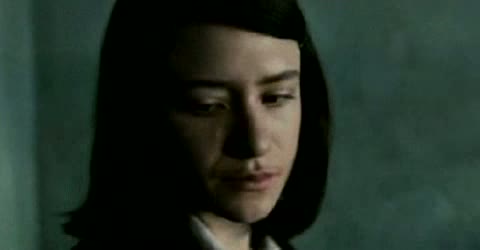Reżyseria:
Marc RothemundScenariusz:
Fred BreinersdorferZdjęcia:
Martin LangerObsada:
Julia Jentsch, Alexander Held, Fabian Hinrichs, Johanna Gastdorf, André Hennicke, Florian Stetter, Maximilian Brückner, Johannes Suhm, Lilli Jung (więcej)Opisy(1)
Monachium, rok 1943. Hitler prowadzi w Europie wyniszczającą wojnę. Grupa młodych ludzi, w większości studentów, uznaje bierny opór za jedyny sposób na osłabienie nazistów i ich nieludzkiej machiny wojennej. Powstaje "Biała Róża", ruch oporu stawiający sobie za cel obalenie Trzeciej Rzeszy. Sophie Scholl jest jedyną kobietą w jego szeregach. Nie podejrzewa jeszcze, że zapisze się na kartach historii. 18 listopada 1943 roku Sophie i jej brat Hans zostają aresztowani podczas rozdawania ulotek na uniwersytecie. Przesłuchania Sophie przez oficera Gestapo, Mohra, przeradzają się stopniowo w psychologiczny pojedynek... (Kino Świat)
(więcej)Recenzje (1)
Sophie Scholl: The Final Days is exactly the type of film that collects stars for its theme and main character. That character is a true resistance fighter executed for anti-Nazi activities. Although I liked the film as a whole, I had and still have a feeling of a certain schematic approach and view of Sophie Scholl. I have no problem with Julia Jentsch's performance, rather with what the script prescribes her. For the overwhelming majority of the film's runtime, her character is simply brave, never stepping out of character, and except for two moments, does not show her emotions, even though she is in a hopeless situation and is facing the worst. She almost always smiles and reacts very quickly to the interrogator's verbal attacks. I read several real stories of resistance fighters and their trials in Nazi prisons, at the Gestapo, in German courts, and later in concentration camps. The Gestapo and the state court in Berlin represented very well-functioning machinery that aimed to break and destroy those being judged. Of course, it was not always necessary to physically torture the interrogated, sometimes they confessed voluntarily. The methods were similar throughout the Reich and physical punishments, threats, and various forms of torture were never far away. For Scholl to dare to give an educational lecture to her interrogator on the advantages of democracy and the sins of Nazi Germany, and later to do the same, albeit on a smaller scale, to the notorious Roland Freisler as the head of the state court, seems highly unlikely to me, although I am not familiar with the details of the trial of The White Rose. However, the People's Court in Berlin was able to break even very tough opponents, among other things, experienced war commanders collapsed under Freisler's roar during the trial of Hitler's assassins or communist resistance fighters accustomed to long years of illegality and hard conspiracy. In short, the film seems a bit too cliché and predictable to me. Overall impression: 65%.
()

